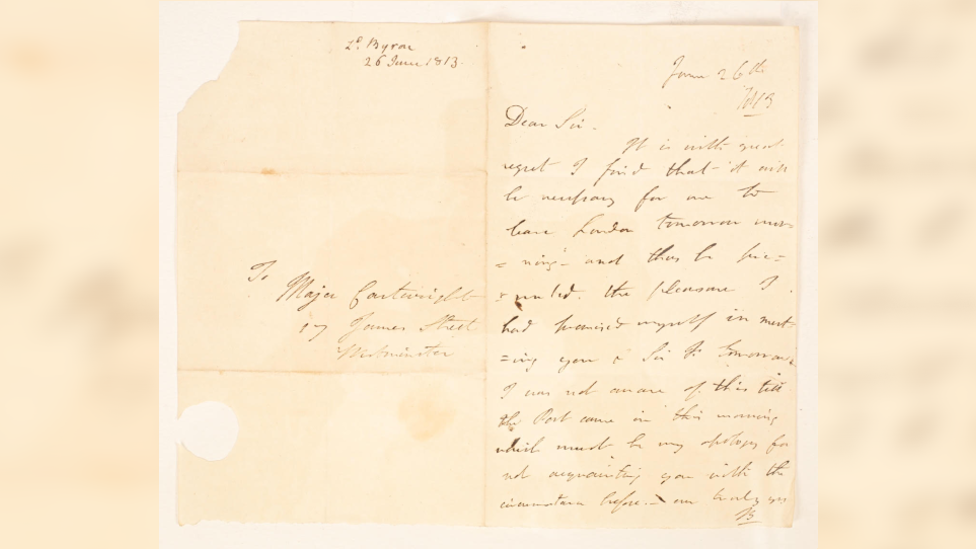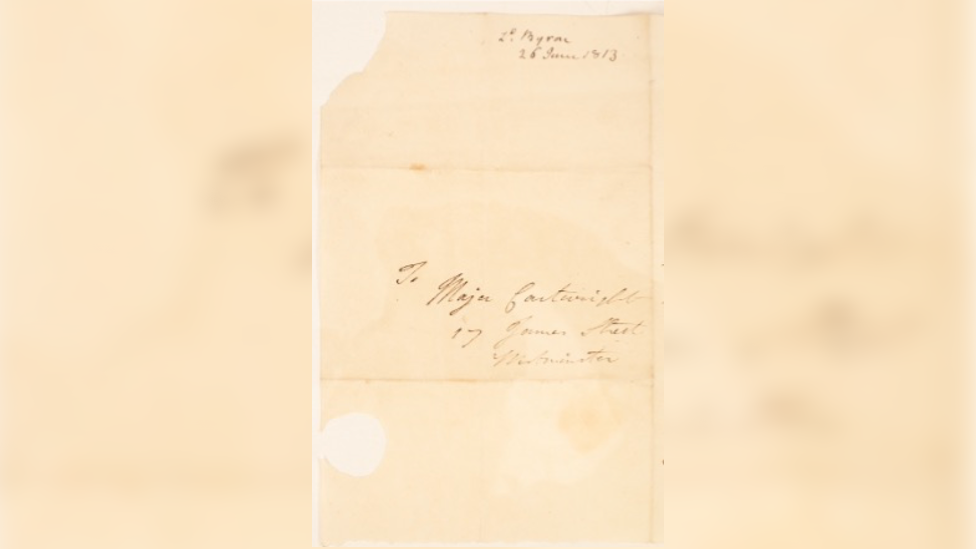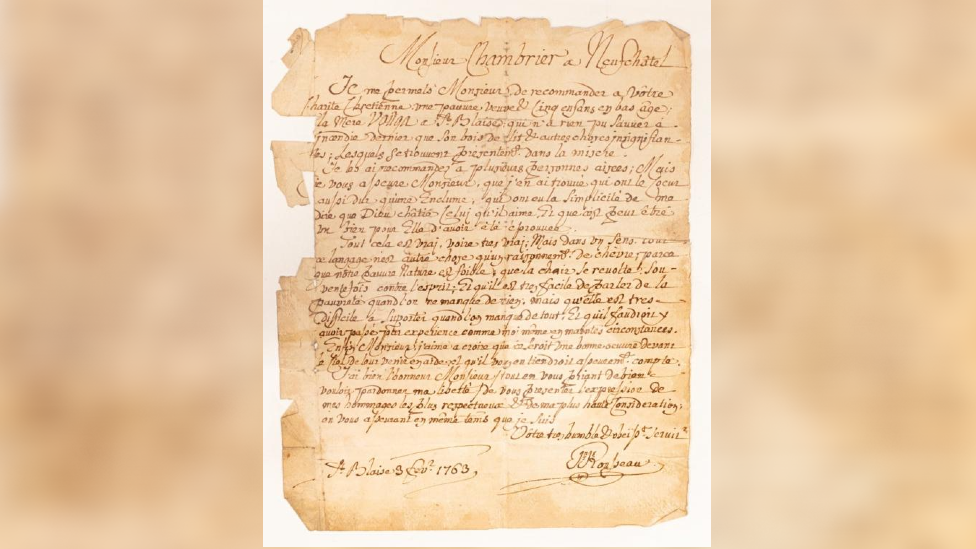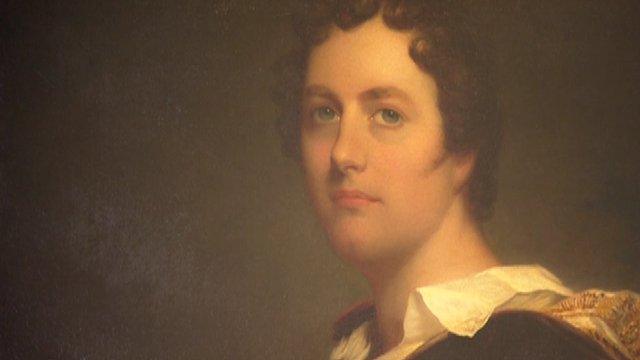Lord Byron letter found in Gloucestershire to be auctioned
- Published

The only letter ever written by revered English poet Lord Byron to John Cartwright
A previously unpublished letter written by one of Britain's most infamous poets - Lord Byron - is to go under the hammer at auction in March.
The letter, written in 1813, was discovered in a Gloucestershire mansion.
It was found along with a letter written by 18th century Swiss philosopher and writer Jean Jacques Rousseau.
The letters are set to make a combined £7,500 at auction on 20 March.
Lord Byron gained notoriety in the 1800s for spearheading the Romantic Movement and for his scandalous private life.
He died aged 36 in 1824 after contracting a fever while leading a campaign against the Ottoman Empire in the Greek War of Independence.

The reverse of Lord Byron's letter
Chorley's auctioneers found the letters during a routine valuation day and the owners had no idea they had it in their possession.
Lord Byron's letter is the only letter ever written by him to Major John Cartwright, an English politician and political reformer who served under Lord Byron's father in the Navy.
The letter is an apology from Byron for cancelling plans with Major Cartwright at the last minute on 26 June 1813.
It reads: "Dear Sir, It is with great regret I find that it will be necessary for me to leave London tomorrow morning - and thus be prevented the pleasure I had promised myself in meeting you & Sir F. tomorrow.
"I was not aware of this till the Post came in this morning, which must be my apology for not acquainting you with the circumstances before. I am truly yrs B".

A letter written by 18th century Swiss philosopher, composer, author and political theorist Jean-Jacques Rousseau
Lord Byron was rumoured to have had a child with his half-sister as well as having affairs and running up debts - and he was the owner of a pet bear.
He travelled widely in Europe, living for seven years in Venice, Ravenna, and Pisa after he was forced to flee England due to being threatened with lynching over his failed marriage.
Werner Freundel, director at Chorley's, said: "The discovery of a letter featuring two such important historical figures in Britain is thrilling, as both contributed so much to our society and the Britain we know today.
"This letter shows a human insight into Byron's extraordinary character and knowing the background to his life at the time, makes it all the more interesting."

Follow BBC West on Facebook, external, X, external and Instagram, external. Send your story ideas to: bristol@bbc.co.uk, external
Related topics
- Published20 August 2022

- Published27 August 2020

- Published4 October 2012
